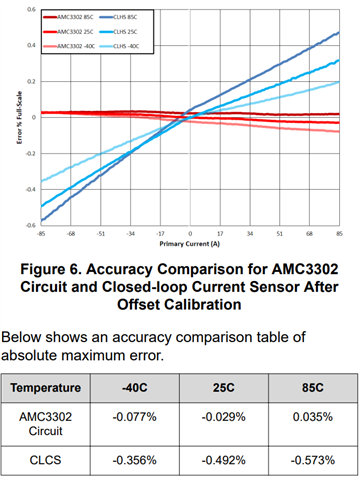Other Parts Discussed in Thread: AMC3302
Hi TI expert,
I have found below paper comparing TI AMC3302 shunt-based scheme with hall-based CLCS(closed-loop current sensor) solution.
https://www.ti.com/lit/pdf/sbaa464

The result shows AMC3302 beats hall-based CLCs completely, could I learn that the hall-based CLCS representing TMCSxxx product as they're actually hall-based?
If NOT, what's the pros and cons when TMCSxxx are put together with AMCxxx? Thanks!


